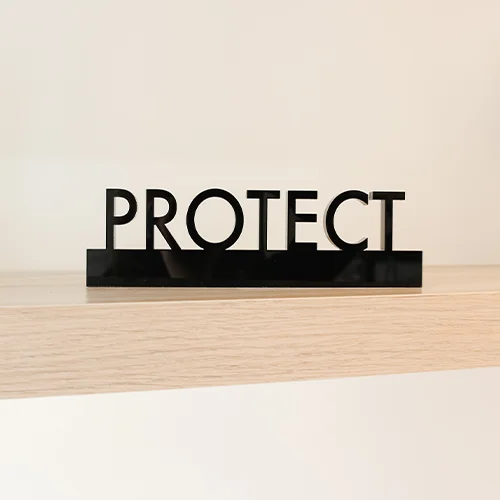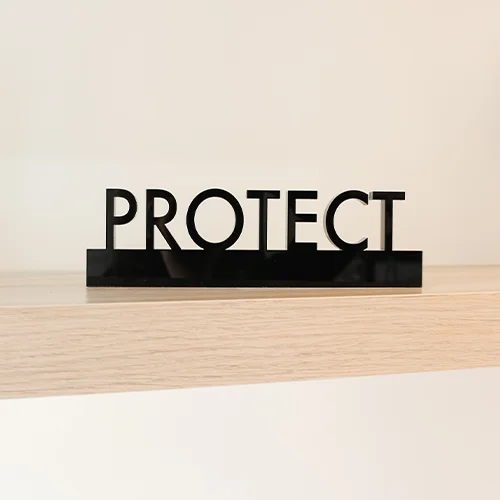As the gloomy winter gives way to the warm and vibrant summer sun, it brings a refreshing and much-needed change to our lifestyles. While we all enjoy the sunshine on our skin, we must be aware that prolonged exposure can lead to harm, including skin cancer and accelerated signs of aging that we prefer to prevent.
What is a tan, anyway? Melanogenesis is the term for melanin production by melanocytes in our skin. To an extent, melanin acts as a “natural sunscreen” for us, responsible for the hyperpigmentation (tan) after sun exposure. The darker pigment helps our skin to absorb light and redistribute the harmful radiation to the outer layers of the skin, protecting the deeper layers from exposure. The tan may be temporary, but the damage remains.


Ultraviolet (UV) radiation from sun exposure causes impaired skin function/repair, unwanted hyperpigmentation, redness from increased inflammation, and genetic changes in the skin. The damage to unprotected skin from radiation exposure shows up in our late 40s to 50s as our skin evolves. Sun damage increases the risk of skin cancer and causes brown spots, wrinkles, skin laxity, rough texture, hyperpigmentation, telangiectasias, and lesions (actinic keratoses).
Here are 6 helpful tips to protect you and your skin this summer:
1. Wear broad-spectrum sunscreen
Applying a broad-spectrum (protects against both UVA and UVB radiation) sunscreen with an SPF of at least 30 every day will help prevent the detrimental effects on the skin from the sun. UV radiation can penetrate clouds and cause damage even on cloudy days; It’s essential to wear sunscreen every day of the year, regardless of the weather. For consistent and prolonged protection, reapply sunscreen every two hours. If you’ve been sweating or immersed in water, it’s advisable to reapply even more frequently. Remember your ears, neck, chest, and hands!
2. Cover up
Protect yourself by covering sun-exposed skin with clothing, such as light, long-sleeved shirts, pants, and wide-brimmed hats. Wear sunglasses that provide UVA and UVB protection to protect your eyes from harmful UV radiation. These sunglasses protect the delicate eye skin and can help prevent cataracts. Opt for a wide-brimmed hat to shield your face, ears, and neck from sun exposure. Use sunscreen on your neck and ears if you wear a baseball cap.


3. Stay inside
Avoid prolonged exposure to the sun, especially if the UV index is greater than 2, or between 10 am and 4 pm when the risk of sunburn is the highest. If you must be outdoors during this time, try to seek shade.
4. Check your skin
Regularly monitoring your skin spots’ appearance and any rapid changes will help find any warning signs of skin cancer. Perform monthly at-home skin checks. Remember the ABDCEs of melanoma – asymmetry, border irregularity, color, diameter (more than a 1/4 inch), and evolution. Any person who has sun-damaged skin or has a history of actinic keratoses (textured skin growths caused by sun exposure) may benefit from visiting a dermatologist for a full-body exam every 6-12 months, or sooner if concerning changes to lesions occur.
5. Medication awareness
Awareness of any photosensitive topicals and medications you are taking can decrease your chances of sunburn and skin damage. Topicals such as salicylic acid, glycolic acid, retinol, and oral medications such as isotretinoin, certain antihistamines, and oral contraceptive pills can increase your sensitivity to the sun. Check with your nurse, doctor, or pharmacist if you need clarification.
6. Make healthy choices
Preserve the health of your skin by avoiding smoking, as it has detrimental effects on the structural collagen and elastin fibers. Embrace a nourishing diet incorporating fruits, vegetables, whole grains, and abundant water to stay hydrated. Engage in activities that reduce stress levels, and prioritize regular sleep to assist in the body’s healing.


UV radiation from the sun causes cumulative damage to all skin types throughout their lifespan. Your skin, being your body’s largest organ, serves a crucial role in protecting your body. Prevention is critical when addressing skin damage, and it’s never too late to take action! At SKIN Clinics, we help guide you in protecting, preventing, and correcting damage in your skin. Contact a clinic near you to allow our team to curate an approach designed exclusively for you and your skin health.
Product Recommendations
November 24 – December 1st
Save up to 25% OFF SKIN gift cards and use them on your favourites all year long.
Your privacy settings
Manage Consent Preferences
Necessary
Analytics
Embedded Videos
Marketing
Facebook Advanced Matching
Facebook CAPI